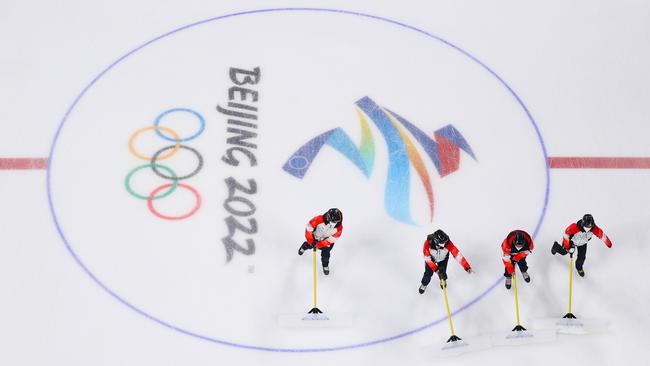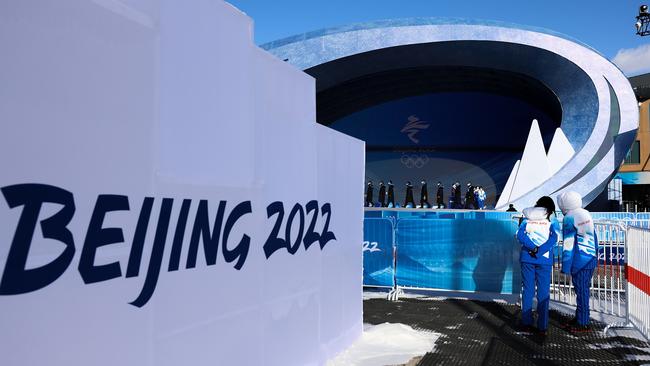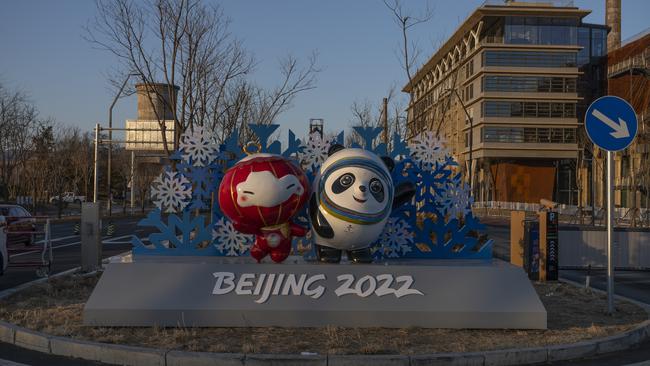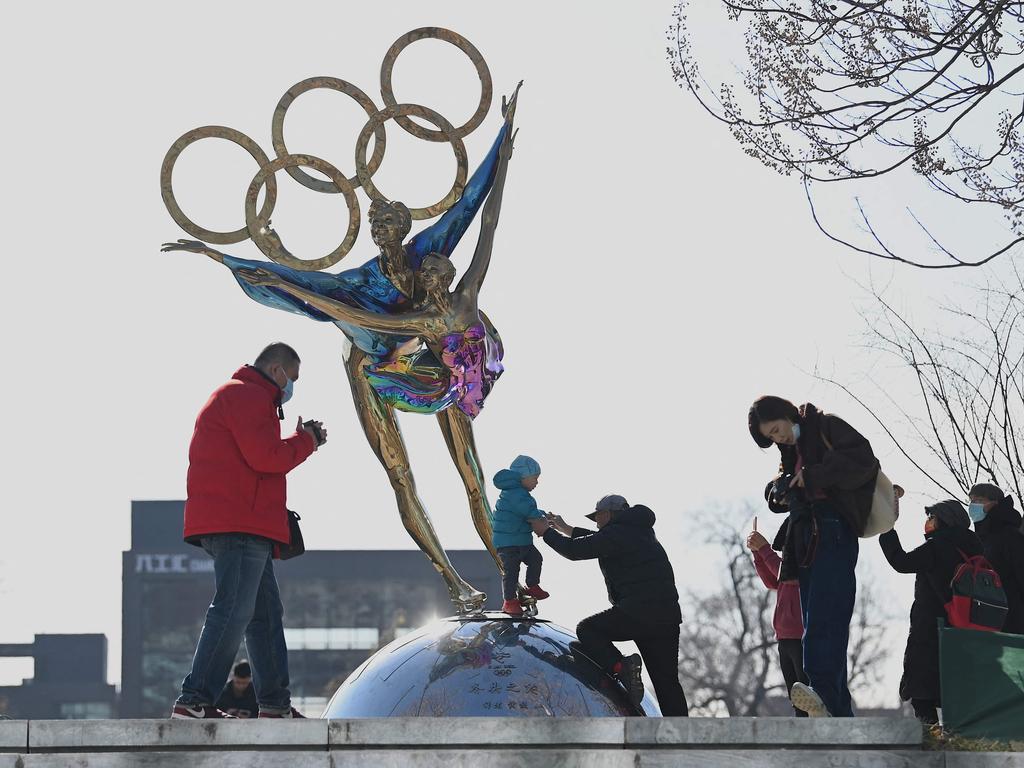
Thirteen and a half years ago, China used the 2008 summer Games as a proud coming out event to the rest of the world.
BHP was a major sponsor of the Games, bringing guests from around the world to see the events. An Australian architectural firm designed the famous blue “watercube” swimming stadium.
Many Australian business people attended, gathering in the Austrade-backed Business Club Australia, meeting potential business partners in China.
The biggest concern was whether Beijing’s polluted skies would be blue enough.
Australian watched the events on the Seven Network as pole vaulter Steve Hooker got his gold medal and hurdler Sally Pearson surprised herself by taking out silver.
Fast forward to 2022 and the International Olympic Committee is still relieved that China stepped up to the plate to host a second Olympics.
The only other contender for these Games was Almaty, the largest city in Kazakhstan, which this month has been the site of violent political protests.
But the IOC it is under fire for choosing Beijing, with China now at odds with many countries over issues such as its treatment of Uygher Muslims in Xinjiang, its crackdown in Hong Kong and its intentions on Taiwan and the South China Sea.
Australia is a long-time Olympic supporter, able to boast that it has attended every modern Olympics since 1896 in Athens, hosted two Olympics (Melbourne 1956 and Sydney 2000) and signed up to host a third in 2032 in Brisbane.
Australia will send 44 athletes to Beijing – its third largest team sent to a winter Games.
While medals for Australia in the winter Games are scarce, the two weeks of the Olympics will see a new crop of sporting heroes – most likely women – who will be celebrated.
But the Games come at a time when Australian relations with China are at a low with diplomatic relations strained.

Australia is one of four countries to stage a “diplomatic boycott” of the Games, following the lead of US President Biden.
More broadly, there is the question of what is really going on inside China and its intentions towards the world.
Covid has seen Chinese leader Xi Jinping largely close his country to foreigners.
Once a globetrotter, Xi himself has not left the country for the past two years.
Those attending the Beijing Olympics including athletes will move in an “Olympic bubble”, with very restricted movement.
The contrast between 2008 and 2022 is stark. Only months ago, business leaders speaking at a webinar hosted by the Australia China Business Council suggested using the Games as a meeting ground with their Chinese counterparts – providing the potential for thawing of political ties. That is now a virtual impossibility.
While China these days is a lot more confident in itself than it was in 2008, the question is whether it is also using Covid as a way to close the door to foreigners, at least ahead of the Party Congress later this year.
Or it is just that its leadership is determined to ensure that China becomes a zero Covid environment at any cost?
Either way, what is really going on inside China, which is becoming less hospitable to foreigners yet wanting to be seen as a major player on the world stage?
When Xi met IOC president Thomas Bach in Beijing this week the two stood apart, socially distanced with masks on.
It was due to Covid of course, but it typified a broader theme – China as part of the global world, a player on a global stage, but also very separate.
How the Games play out, how they are perceived domestically and to the outside will inevitably be part of Chinese history – just as Japan’s successful navigation of last year’s Games (postponed from the year before) under very stressful conditions said something about that county.
“The Winter Olympics won’t be the same propaganda success for Beijing that the 2008 Summer ones were,” says James Laurenceson, director of the Australia China Relations Institute at Sydney’s UTS.

“But nor will they be the slap down that many of its critics in the West were hoping for.”
He points out that it is “not widely appreciated in Australia that we are just one of four countries to have announced a diplomatic boycott” with more than 90 other countries taking part with no diplomatic boycott.
“On balance, Beijing would assess that it has come out on top and that its global heavyweight status is now widely recognised, if not always enthusiastically celebrated.
“China in 2022 is a complex landscape that defies many of the simple narratives that are commonplace in the West, such as that its economy is now closing up after four decades of opening to the world.
“There are instances where that’s true but the bigger picture is that both its exports and imports to every major region of the global economy are higher now than they’ve ever been. So too is the total stock of foreign investment in China and Chinese holdings of assets abroad.
“Just as very few, even in China, foresaw that Xi Jinping would take the country in the direction he has, it would be a mistake now to imagine the current path is set in stone. If there’s anything that can be learnt from the history of the People’s Republic it’s that twists and turns are the norm.
“It’s true that US-China strategic competition looks baked in but how both sides handle that still leaves plenty of room for a number of possible futures.”
Businessman and former federal sports minister Warwick Smith rejects suggestions that China is using Covid as an excuse to keep out foreigners.
He says its strict border controls at the moment due to Covid are part of the inevitable nature of authoritarian regimes.
“They are absolutist. They always seem to direct policy very strongly in a narrow way,” he says. This leads to “global own goals with their over-reaction. It’s the nature of authoritarian regimes.
“China lacks flexibility and pragmatism and it is absolutist in mind set from its government and does not respect freedom. It is a penalty it carries within its nation and the limits of its people’s engagement with the world.”
But as he points out, despite tensions, Australia’s trade with China is still holding up pretty well despite tariffs on goods such as wine, barley and coal.








Australia’s complex relationship with its major trading partner will be on display next week with the opening of the 2022 Winter Games in Beijing.